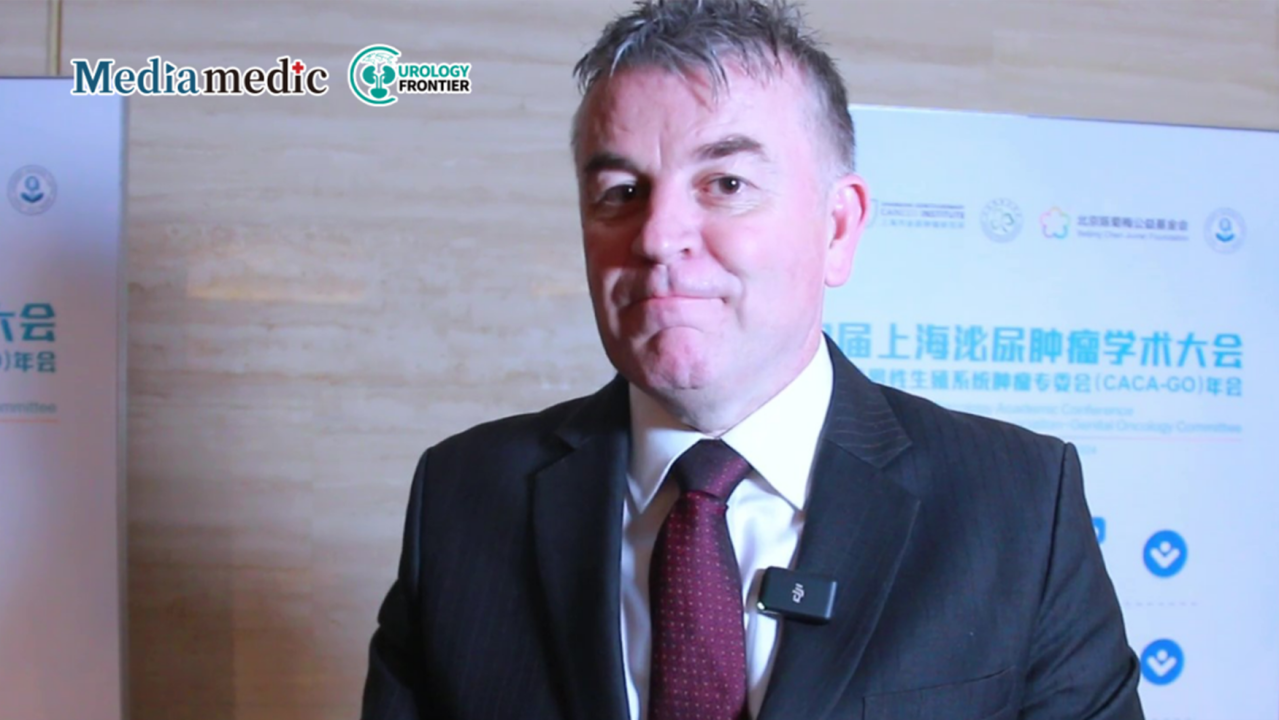
Professor Declan Murphy on Whether Pelvic Lymph Node Dissection for Prostate Cancer Is ‘Dead’ – Mediamedic
Mediamedic posted the following on LinkedIn:
“Editor’s Note :The 14th Shanghai Genitourinary Oncology Academic Conference and Annual Meeting of Chinese Anti-Cancer Association—Genitourinary Oncology Committee (CACA-GO) recently took place in Shanghai. The conference invited numerous internationally renowned experts in uro-oncology to deliver academic presentations and perform surgical demonstrations. Professor Declan Murphy from the Peter MacCallum Cancer Centre in Australia delivered a compelling talk titled “Is pelvic lymph node dissection for prostate cancer now dead?” In an exclusive interview with Urology Frontier, he shared his insights and experiences on pelvic lymph node dissection (PLND) for prostate cancer.
Urology Frontier: Nowadays, PET-CT is used for lymph node staging in prostate cancer, and radiotherapy or androgen deprivation therapy are options for biochemical recurrence. Given that lymph node dissection carries certain risks of complications, do you believe it is necessary for prostate cancer patients to undergo pelvic lymph node dissection (PLND)?
Professor Declan Murphy: This year, there has been a significant change in the European Association of Urology (EAU) guidelines regarding pelvic lymph node dissection for prostate cancer. Previously, the guidelines strongly recommended PLND for patients with suspected lymph node metastasis based on pathological criteria.
However, the 2024 guidelines have substantially reduced the emphasis on PLND. My perspective is that, particularly for patients who undergo PSMA PET-CT, very few benefit from pelvic lymph node dissection. If the PSMA PET-CT shows no evidence of lymph node metastasis, the likelihood of lymph node involvement is extremely low, and those patients are unlikely to gain any meaningful benefit from the procedure.
This shift represents one of the most significant changes in prostate cancer guidelines over the past decade.
Urology Frontier: In clinical practice, how do you determine whether PLND is necessary? Does PSMA PET-CT play a major role in your decision-making?
Professor Declan Murphy: Absolutely. One of the key advantages of PSMA PET-CT in staging newly diagnosed prostate cancer is its ability to guide decisions regarding pelvic lymph node dissection.
In 2023, a new predictive model was published in European Urology Oncology, incorporating PSMA PET-CT data for the first time. The study showed that when a PSMA PET-CT scan does not reveal lymph node metastasis, the likelihood of lymph node involvement during PLND and persistent PSA is significantly reduced.
What does this mean in clinical practice? In Australia, where PSMA PET-CT is widely used, we generally do not recommend pelvic lymph node dissection if the scan shows no lymph node involvement. Over the past decade, the proportion of patients for whom I perform PLND has declined dramatically—from over 50% to less than 5%. In the PSMA PET-CT era, PLND has almost disappeared from our clinical practice.
Urology Frontier: There is ongoing debate about standard PLND versus extended PLND (ePLND). What is your perspective on this issue?
Professor Declan Murphy: At the end of 2024, a significant paper was published in European Urology by Memorial Sloan Kettering Cancer Center. It presented a randomized trial comparing standard (limited) PLND with extended PLND. The standard group involved dissection of only the external iliac lymph nodes, while the extended group included the internal iliac, obturator, and hypogastric nodes.
The trial concluded that extended PLND did not show any significant benefit over standard PLND in improving biochemical recurrence-free survival (HR 1.05, P=0.03). However, a retrospective analysis within the study suggested a potential reduction in metastasis (any metastasis: HR 0.82; distant metastasis: HR 0.75) with extended PLND. It is important to note that this was not a pre-specified endpoint, and the imaging methods used were not standardized, making the reliability of this conclusion questionable.
From my viewpoint, there is currently no definitive evidence showing a clear advantage of either standard or extended PLND. The key consideration is whether pelvic lymph node dissection, in any form, provides tangible benefits. If the PSMA PET-CT results are negative, very few patients are likely to benefit from PLND. This is why the 2024 updated guidelines significantly de-emphasize the role of PLND.
About Professor Declan Murphy
Professor Declan Murphy is a Consultant Urologist, Director of Genitourinary Oncology, and Head of Robotic Surgery at the Peter MacCallum Cancer Centre in Melbourne, Australia. He is also a Professor-level Research Fellow at the Department of Oncology, University of Melbourne. Previously, he served as a Consultant Urologist at Guy’s and St. Thomas’ NHS Foundation Trust in London.
Professor Murphy specializes in genitourinary oncology, with a particular focus on prostate cancer.”
-
Challenging the Status Quo in Colorectal Cancer 2024
December 6-8, 2024
-
ESMO 2024 Congress
September 13-17, 2024
-
ASCO Annual Meeting
May 30 - June 4, 2024
-
Yvonne Award 2024
May 31, 2024
-
OncoThon 2024, Online
Feb. 15, 2024
-
Global Summit on War & Cancer 2023, Online
Dec. 14-16, 2023
